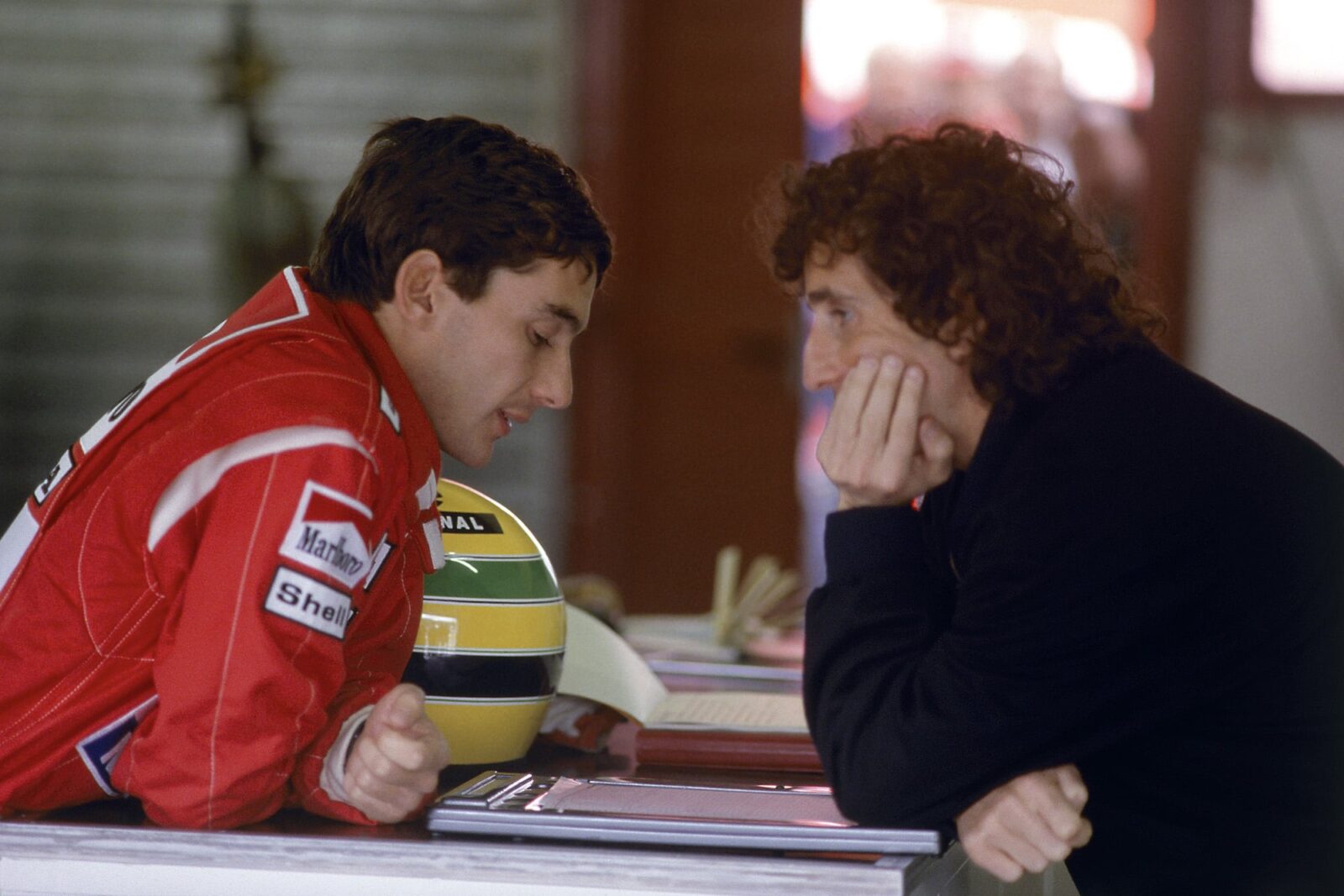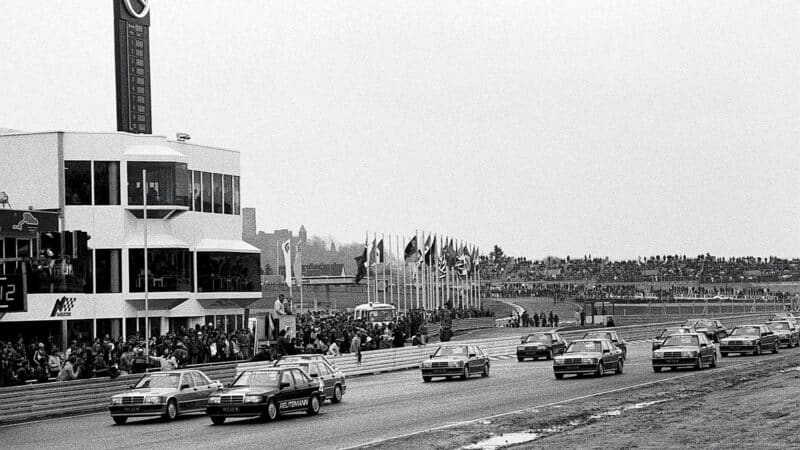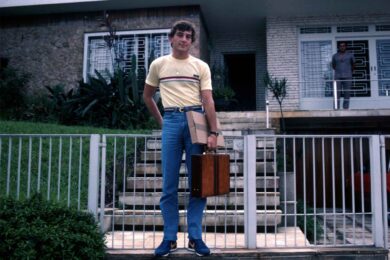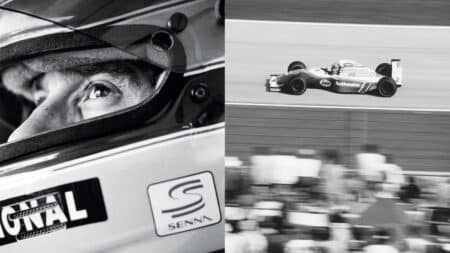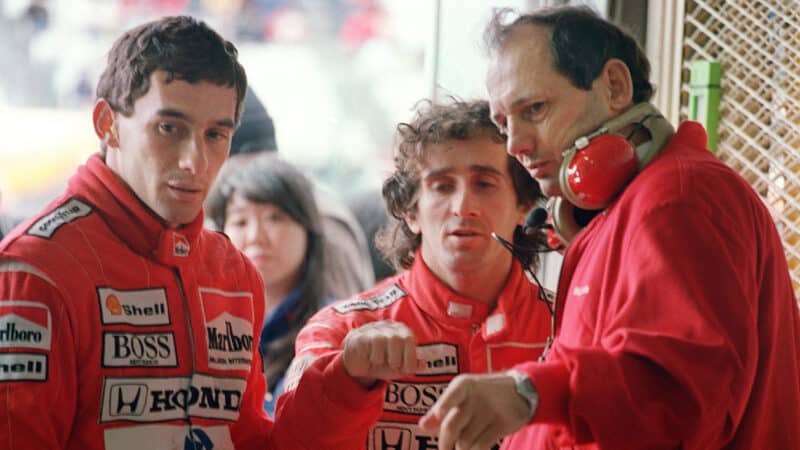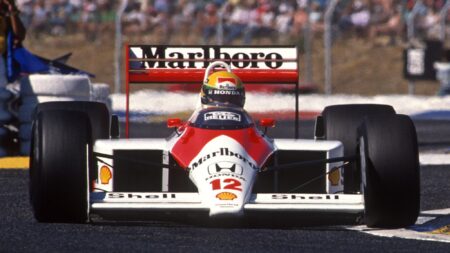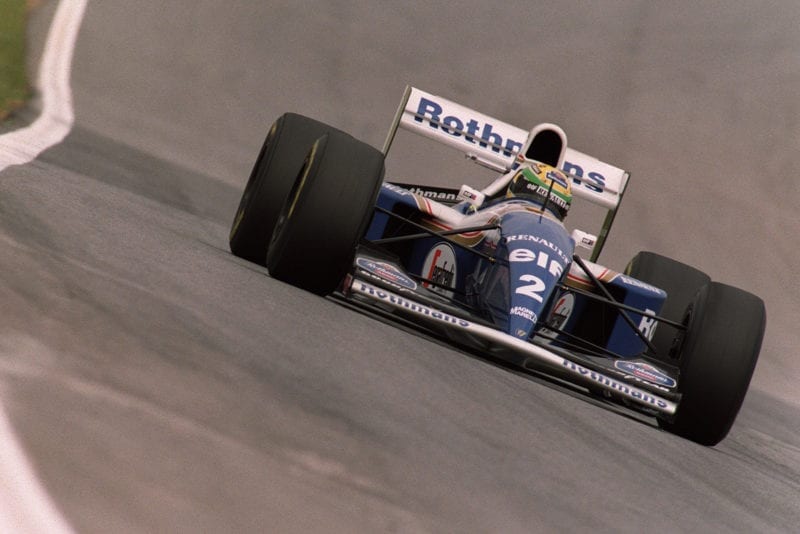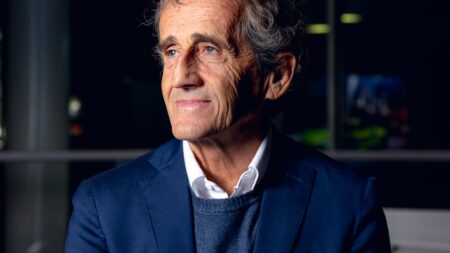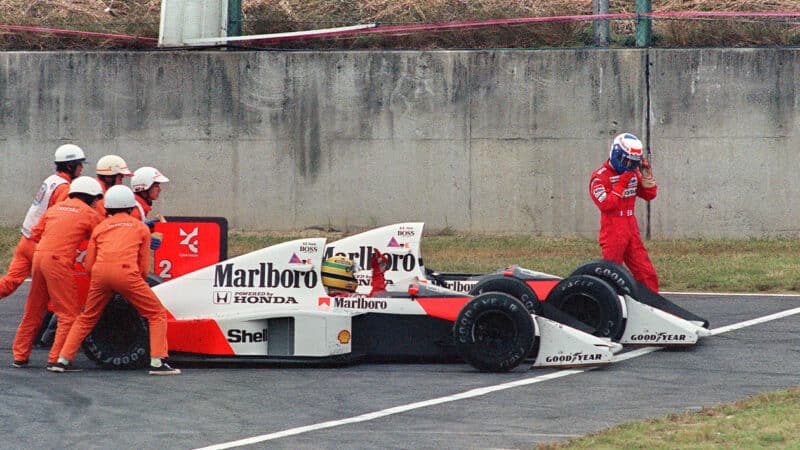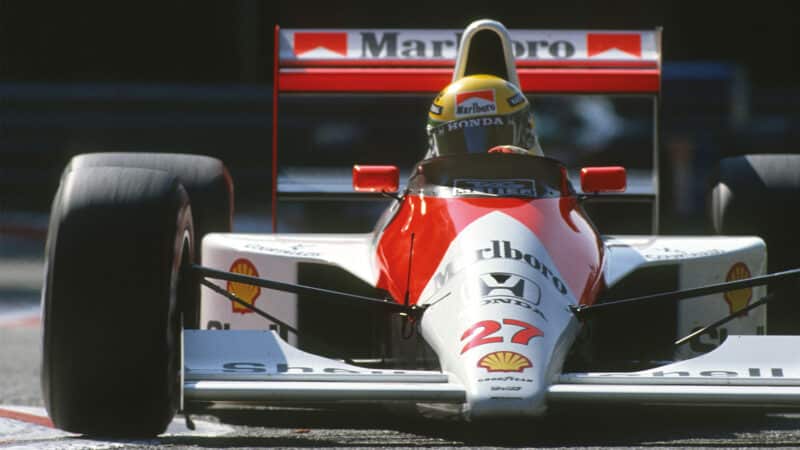PD: You were annoyed?
AP: Yes, yes. I thought it was a bit off. It was our first meeting, and already there was some constraint.
PD: He was an unusual personality, wasn’t he?
AP: Special, different, yes. He had a theatrical side, with his elaborate speech. His moments of lengthy reflection, at the end of which he’d come out with three well-matured phrases.
And he orchestrated his arrival in racing, with his own press releases, even when he was still in Formula 3! Nobody was doing that at the time. I’ve never known if his air of mystery was natural, or if it was all part of the game. But you have to admit that it pleased the journalists!
For me, that press conference at Monaco when he said that while he was setting pole he seemed to leave the cockpit and watch himself driving – well, if a normal guy said that today, you’d put a straitjacket on him and make sure he never drove in F1 again! But that was all part of his personality.
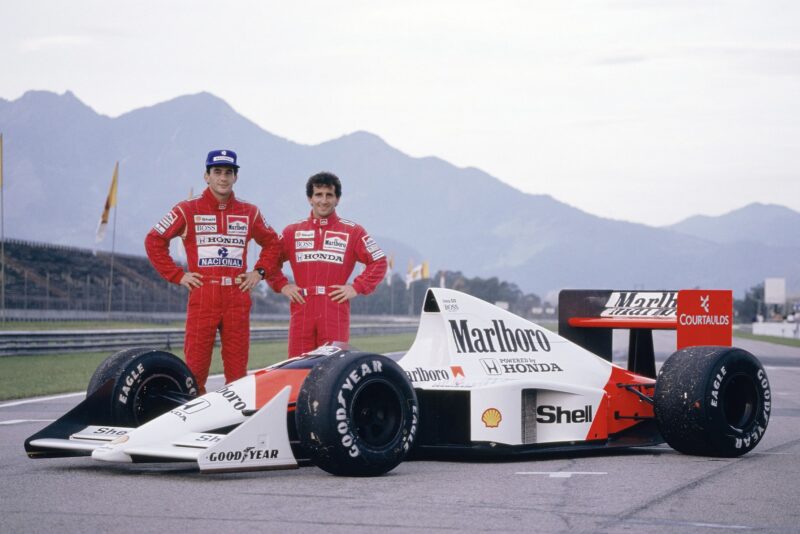
The smiles didn’t last long at McLaren for Senna and Prost
DPPI
PD: When you two were team-mates at McLaren, I imagine you could learn from each other. What do you think you learned from him?
AP: It sounds a bit pretentious to say this, but if I’m honest – nothing. I learned a lot from Niki Lauda – well, I was much younger then. Ayrton was in the same position with me as I was with Niki, and I think he learned a lot from me.
PD: A lot?
“His strength was in optimising the car for a quick lap”
AP: Yes. His strength was in optimising the car for a quick lap. Above all the use of qualifying rubber, which for me was a small concern. I recall that at Ferrari I often qualified on race rubber, particularly in Mexico where I went on to win.
PD: Why would that be?
AP: It’s not something you can learn. You just have it, that’s all. A mystery. But as far as racing skills go, I didn’t learn anything from him. For him it was all about qualifying. He’d watch what I was doing, then throw himself into the whole business of qualifying.
PD: Is that where his domination came from?
